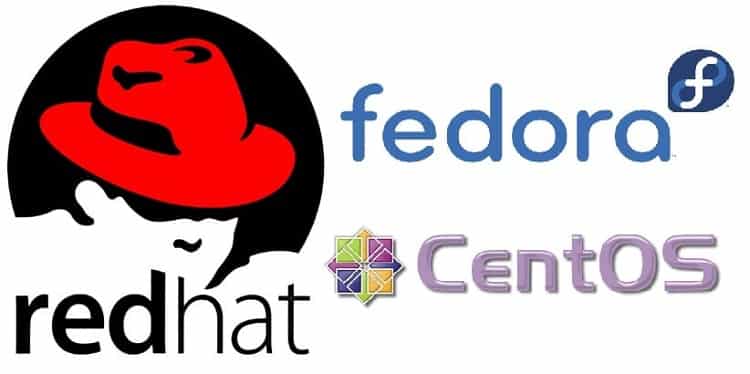Fedora vs. RHEL: Community or Enterprise?

Introduction
Fedora and Red Hat Enterprise Linux (RHEL) are two popular Linux distributions. Fedora is a community-driven distribution, while RHEL is an enterprise-focused distribution developed by Red Hat. Both distributions have their strengths and weaknesses, depending on the specific needs of the user.
Community Support and Development
Fedora is developed by a community of volunteers and is released on a six-month cycle. This rapid release schedule allows for the inclusion of the latest software and features. The community-driven nature of Fedora also means that there is a large pool of users and developers who can provide support and assistance.
On the other hand, RHEL is developed by Red Hat and is released on a longer, 10-year cycle for major releases, and a 5-year cycle for minor releases. This slower release schedule ensures stability and reliability, which is important for enterprise environments. RHEL also comes with commercial support from Red Hat, which can be valuable for organizations that need professional assistance.

Package Management and Software Selection
Fedora uses the DNF (Dandified Yum) package manager, while RHEL uses the Red Hat Package Manager (RPM). Both package managers are capable of installing, updating, and removing software packages. However, DNF is generally considered to be more user-friendly and supports features such as rollback and dependency resolution.
RHEL has a more curated software selection than Fedora, as it focuses on stability and security. Fedora includes a wider range of software packages, including cutting-edge software and bleeding-edge technologies.

Security and Stability
Fedora is considered to be a more bleeding-edge distribution than RHEL, which means that it can be more susceptible to security vulnerabilities. However, Fedora also has a strong security community that quickly releases patches and updates.
RHEL is known for its stability and security. It undergoes rigorous testing and certification before it is released, and it is supported by Red Hat’s commercial support services.
Cost and Licensing
Fedora is free and open source. RHEL is a commercial distribution that requires a paid subscription for support and updates. However, RHEL also offers a free community version called Red Hat Enterprise Linux Developer Suite, which can be used for non-production purposes.
Conclusion
Fedora and RHEL are both excellent Linux distributions with different strengths and weaknesses. Fedora is a great choice for users who want the latest software, a large community, and a free and open source solution. RHEL is a more stable and secure distribution that is suitable for enterprise environments and organizations that require professional support.## Fedora Vs. Rhel: Community Or Enterprise?
Executive Summary
Fedora and RHEL are both popular Linux distributions, but they have different strengths and weaknesses. Fedora is a community-based distribution that is known for its cutting-edge features and rapid release cycle. RHEL is an enterprise-oriented distribution that is known for its stability and reliability.
In this article, we will compare Fedora and RHEL in terms of their key features, benefits, and drawbacks. We will also provide a recommendation on which distribution is right for you.
Introduction
Fedora and RHEL are two of the most popular Linux distributions in the world. They are both based on the Linux kernel, but they have different target audiences and use cases.
Fedora is a community-based distribution that is developed by Red Hat and a global community of contributors. It is known for its cutting-edge features and rapid release cycle. Fedora is a good choice for users who want to stay on the bleeding edge of Linux development.
RHEL is an enterprise-oriented distribution that is developed and supported by Red Hat. It is known for its stability and reliability. RHEL is a good choice for businesses and other organizations that need a stable and secure operating system.
Key Features
Fedora
- Cutting-edge features
- Rapid release cycle
- Community-based development
- Free and open source
RHEL
- Stable and reliable
- Enterprise-oriented features
- Commercial support
- Paid subscription
Benefits
Fedora
- Access to the latest Linux features
- Can be customized to meet your specific needs
- Free and open source
RHEL
- Stability and reliability
- Enterprise-oriented features
- Commercial support
Drawbacks
Fedora
- Can be less stable than RHEL
- May not be suitable for all users
- Can be more difficult to install and configure than RHEL
RHEL
- Not as cutting-edge as Fedora
- Can be expensive
- May not be as customizable as Fedora
Which Distribution Is Right For You?
The best way to decide which distribution is right for you is to consider your specific needs and preferences. If you are looking for a cutting-edge distribution with the latest features, then Fedora is a good choice. If you are looking for a stable and reliable distribution for your business, then RHEL is a good choice.
Keyword Phrase Tags
- Fedora vs. RHEL
- Community vs. enterprise Linux
- Linux distributions
- Operating systems
- Red Hat

This is a great article! I’ve been using Fedora for years and I’m always impressed by how stable and reliable it is. I’ve never had any major problems with it, and it’s always been up-to-date with the latest software.
I’ve used both Fedora and RHEL, and I have to say that I prefer RHEL. It’s more stable and reliable than Fedora, and it has a wider range of software available. I also find that RHEL is better supported by the community.
Fedora and RHEL are both great operating systems. Fedora is a good choice for users who want a bleeding-edge operating system with the latest software. RHEL is a good choice for users who want a stable and reliable operating system that is supported by a large community.
I don’t understand why anyone would use Fedora over RHEL. RHEL is clearly the better choice. It’s more stable, reliable, and has a wider range of software available.
Fedora is the best! It’s free, open source, and has a huge community behind it. I’ve been using it for years and I’ve never had any problems with it.
RHEL is the only real choice for enterprise users. It’s the most stable and reliable operating system available, and it has the best support from the community.
I’m not sure why anyone would use Fedora or RHEL. They’re both just Linux distributions. I prefer Windows because it’s more user-friendly and has a wider range of software available.